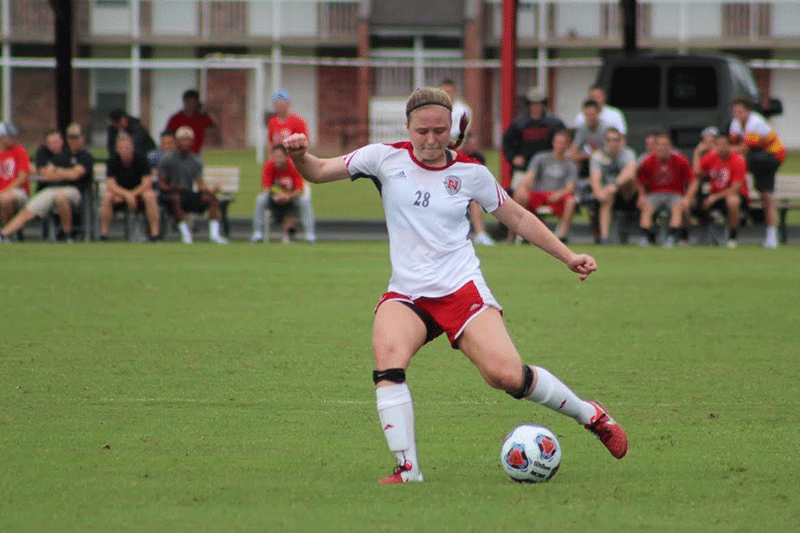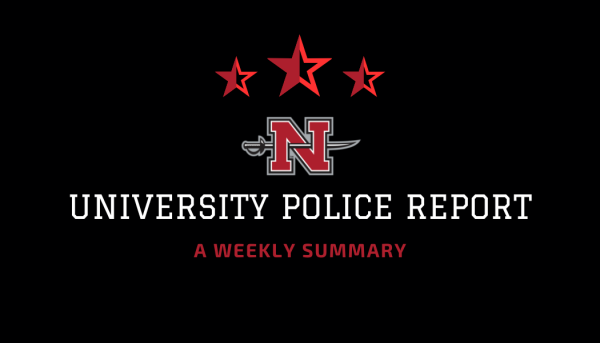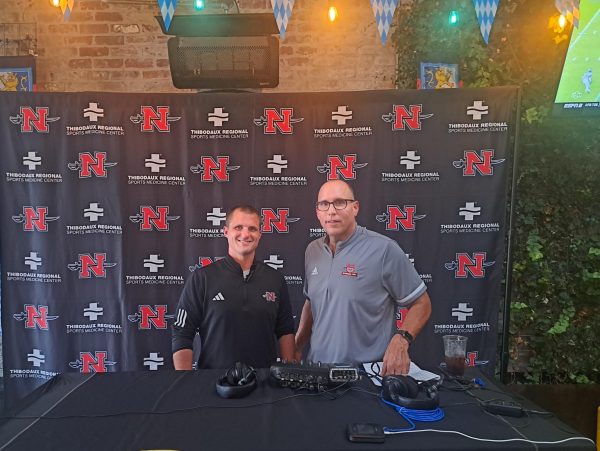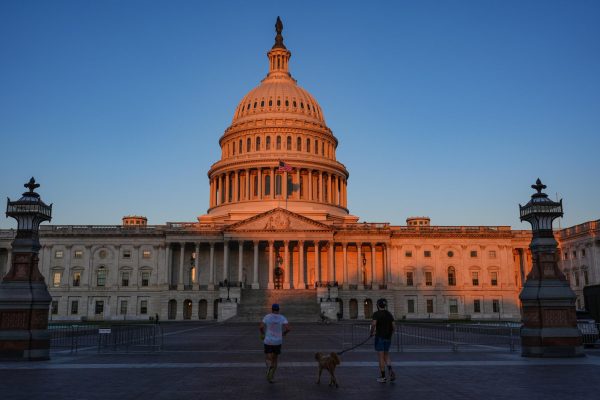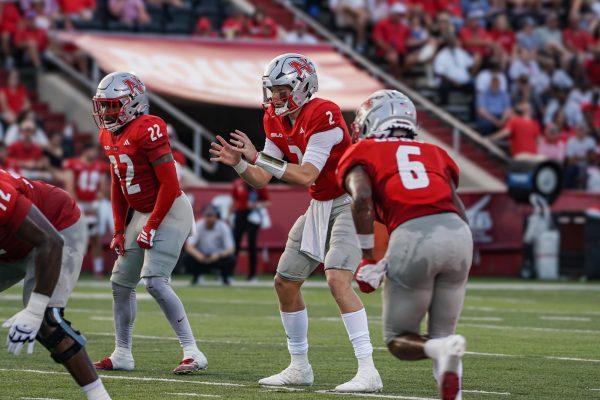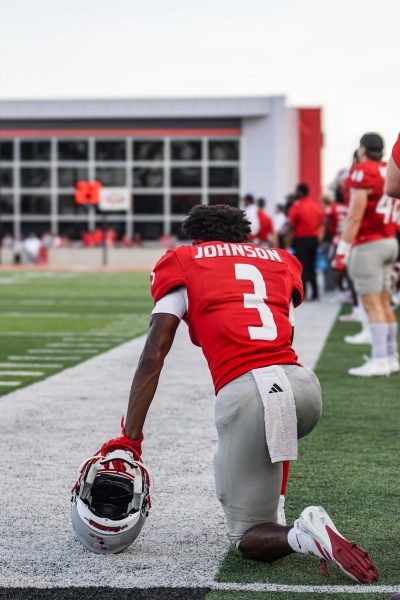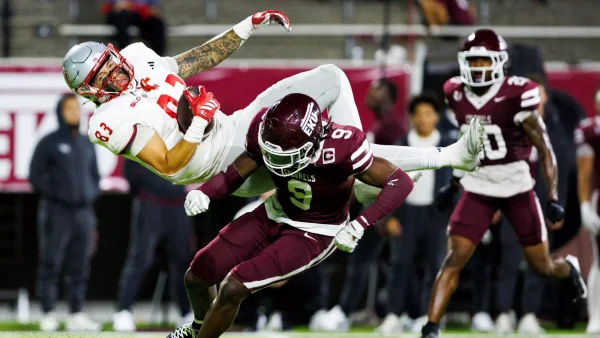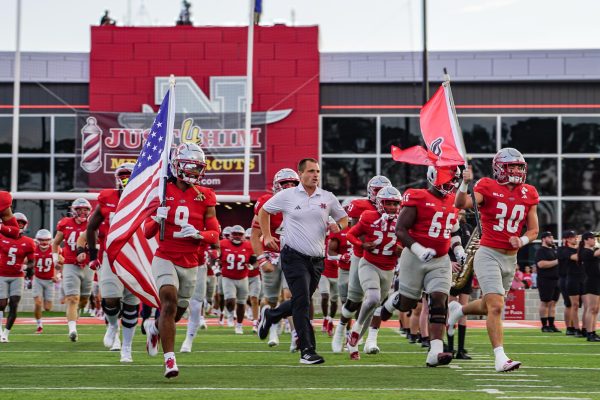Soccer player represents conference at national convention
Photo by: Photo By Colonel Athletics
Ainsley Pratt (No. 28) sophomore midfielder from Tallahassee, Florida sends the ball upfield.
Ainsley Pratt has been a steady contributor to the Colonel soccer team since arriving on campus, but now her role is expanding to something greater than just athletics.
The sophomore midfielder from Tallahassee, Florida was recently selected to represent the Nicholls Student Athlete Advisory Committee at the Southland Conference SAAC conference. From there, the biology major was chosen to represent the conference at the national SAAC conference this past summer. Each conference sent no more than two student-athlete representatives to the national convention.
The stated mission of the Southland SAAC is to provide a platform through which student-athletes from member institutions may be heard on issues concerning student-athlete welfare, national and conference rules and regulations, community service sportsmanship and personal development. Essentially, this is the student-athlete’s voice in NCAA legislation.
Q: How did you get to be selected to attend both conferences?
A: We have this organization called the Student Athlete Advisory Committee. I was invited to the Southland Conference SAAC conference this past summer in Texas to represent Nicholls. I had no idea what I was getting myself into, and when I got there it was mainly NCAA legislation stuff.
Then in January, the head of the Southland Conference SAAC emailed me and said for me to go to the national conference in April. She didn’t really give me any details, but she thought it would be really good if I went. I didn’t want to miss our spring game, so I called Dylan (soccer head coach Dylan Harrison). He said he’d thought I’d have just as a productive experience if I went to the conference than if I played in the game. So I was like, all right sure!
Q: What did you do at these conferences?
A: In the summer, I was representing the school SAAC, but the NCAA hosted this last one. They have three divisions and each division has conferences. Each conference in all three divisions could send up to two student-athletes and an administrator. It ended up being a total of 325 people, and I’d say about half of them were coaches and administrators. At the national conference, one day was geared toward SAACS, and that played a role in why I was selected because I had done that stuff at the Southland SAAC conference. The rest of the days ended up being a lot of character and leadership building.
I’d say it’s basically the student voice for NCAA legislation. Their big focus now is time demands. Student-athletes are trying to get the NCAA to change some of the time demands to better meet the needs of student-athletes. We have too many demands for athletics that are overpowering our academic abilities. Our baseball team just missed a week of school while playing games in Texas. So at the end of the day, are we student-athletes or athlete-students.
Q: What did you learn that you plan on implementing on campus with our student-athletes?
A: As far as athletics in general, I learned we have such a voice as a community. When I walk around on campus, I’m not just a student. When an athlete walks around campus, we’re not recognized by our names, but by what sport we play. So when we come together as a voice, we represent more than just ourselves— which is the coolest thing about it. The way that we have an impact on the school, not just as being a presence, but being a permanent entity of the school is we’re the brand, we’re advertising for the school. We make it on TV, and play in other states. I wouldn’t have even known what Nicholls State was if it wasn’t for soccer. I lived in New Orleans and still didn’t know what Nicholls was.
Another thing I brought back was an idea of how athletics empowers us not just in the present being a student-athlete, but in the future. One of the conferences we had was how to take your athletics and make it work for you in the workforce. It’s being able to utilize time management and leadership skills to achieve a common goal. In order to be a student-athlete, you have to have an extra-special work ethic to go to class, practice, be on time and represent your University in a certain way. As student-athletes, we don’t realize the potential we have to do things. Out of about 7,000 students, only about 3,000 are on campus. And out of those, on campuses that are full time about 25 percent are student-athletes. We have so much power as a voice that it is really important that we get organized.


